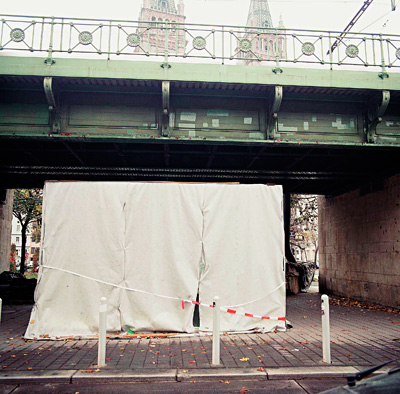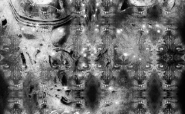| Umělec magazine 2009/2 >> Everything’s Under Control:The Regulation of Public Spaces in Vienna | List of all editions. | ||||||||||||
|
|||||||||||||
Everything’s Under Control:The Regulation of Public Spaces in ViennaUmělec magazine 2009/201.02.2009 Elisabeth Mayerhofer | public space | en cs de |
|||||||||||||
|
Vienna is known for its stable administration, which provides a consistent political climate. The Austrian Social Democratic Party (SPÖ) has held the position of mayor
of Vienna since 1945. In the last decade, however, there has been a restructuring that featured the privatization of structures previously been under public control—at least the Austrian private companies (GmbHs) with close ties to the city. This strategic shift to conserve power results in the abrogation of various commitments that had formerly been state regulated. Formally it’s no longer about organizations bound by regulations. Political control over the network of people, participation and the arrangement of financial performance is unofficially taken for granted. However, political responsibility is blurry. And this is where public space— specifically art in public spaces—becomes an issue. The administration responsible for this area puts art in public spaces into the hands of private companies. GmbH Art/Privately funded art in public spaces is an exhibition institute affiliated with Kunsthalle Wien (Vienna Art Exhibition House), operating with a budget of approximately 800,000 Euro per year. External experts make up a jury, changed at regular intervals, to allocate the funds. It’s extremely difficult to finance a project outside of this budget. The organization also assists overcoming bureaucratic obstacles associated with public space use—an undertaking that is still in its infancy.1 These hurdles present an additional integral problem for artistic works in public spaces. The approval process and administrative costs for projects are so enormous, many small projects never even get off the ground. Another aspect is the encroaching of commercial interests to public spaces. Take, for instance, the relatively recent ban on posting independent advertisements. Public placard space was gingerly restricted in 2008. Space for pre-fabricated advertisements—especially those with close ties to the city—were appropriated throughout Vienna just as independent placard posting came under fire. Some spaces were marked as ‘free,’ but the rest are to be directly controlled. Whoever wants a space for posting can buy it—if it’s approved and at a price prohibitive to many smalltime artists. The constriction of accessible advertisement space is only indirectly related to art in public spaces, but it illustrates the close relationship between Vienna’s public administration and its commercial interests: On one hand the already visible tightly-woven fibers of the administration network are being pulled more tightly and are leading to cultural-political discourse. On the other hand, those who can’t afford it are forced to either give up or resort to breaking the law. The authorized independent artists—already not one of Vienna’s strong points—are disappearing to the benefit of companies that promote mass-production consumer society. In a nutshell, Vienna is not fertile ground when it comes to grassroots projects—especially when they fall in the public domain. You see, activity must be controlled. Uncontrollable activity in urban spaces, even small ones, seem to incite visible fear in the political and administrative machinery. And this is where we get the supposed conflicting mix of politics of control and privatization that actually works like this: public space becomes advertisement space sold to the highest bidder. 1 Netbase, a group which envisioned spraypainting the shadows of helicopters on the ground in the inner-city, were unable to realize their project due to security concerns.
01.02.2009
Recommended articles
|
|||||||||||||










Comments
There are currently no comments.Add new comment